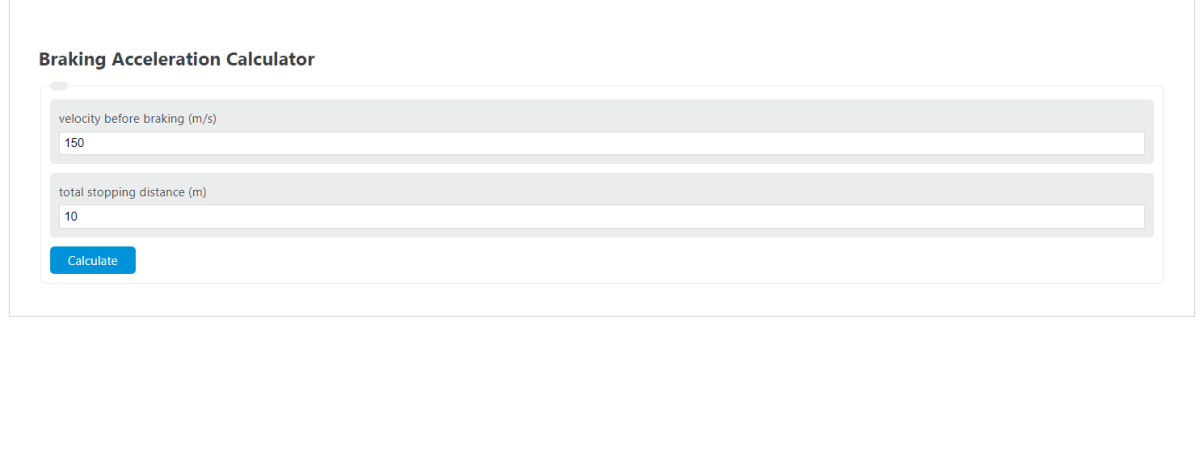Enter the velocity before braking and the total stopping distance into the calculator to determine the Braking Acceleration.
- All Acceleration Calculators
- Braking Force Calculator
- Stopping Distance Calculator
- Brake Caliper Clamping Force Calculator
Braking Acceleration Formula
The following equation is used to calculate the Braking Acceleration.
Ab = V^2 / (2*SD)
- Where Ab is the Braking Acceleration (m/s^2)
- V is the velocity before braking (m/s)
- SD is the total stopping distance (m)
To calculate the braking acceleration, square the velocity before braking, then divide by 2 times the stopping distance.
Braking acceleration is also often referred to as braking deceleration.
What are the units for Braking Acceleration?
The most common units for Braking Acceleration are m/s^2.
How to Calculate Braking Acceleration?
Example Problem:
The following example problem outlines the steps and information needed to calculate the Braking Acceleration.
First, determine the velocity before braking. In this example, the velocity before braking is determined to be 150 (m/s).
Next, determine the total stopping distance. For this problem, the total stopping distance is measured to be 10 (m).
Finally, calculate the Braking Acceleration using the formula above:
Ab = V^2 / (2*SD)
Inserting the values from above and solving the equation with the imputed values gives:
Ab = 150^2 / (2*10) = 1125 (m/s^2)
FAQ
What factors can affect braking acceleration?
Several factors can influence braking acceleration, including the condition of the brakes, the type of brake system (e.g., disc or drum brakes), the weight of the vehicle, road conditions (wet, dry, icy), and tire conditions. These factors can significantly impact the total stopping distance and, consequently, the braking acceleration.
How does vehicle speed before braking impact the stopping distance?
The vehicle speed before braking directly impacts the stopping distance in a quadratic relationship, meaning that as the speed doubles, the stopping distance quadruples under the same braking conditions. This is because the kinetic energy of the vehicle, which needs to be dissipated through braking, increases with the square of the speed.
Why is braking acceleration also referred to as deceleration?
Braking acceleration is often referred to as deceleration because it represents the rate at which a vehicle slows down. While acceleration generally refers to an increase in speed, deceleration specifically denotes a decrease in speed. In the context of braking, acceleration is negative, indicating a reduction in velocity over time, hence the term deceleration.
